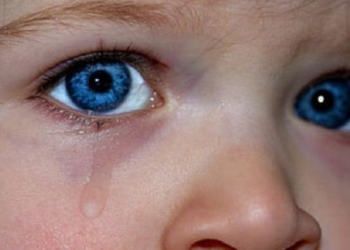To a large degree, most adults are still unwilling to talk about sexuality in public settings. Despite many years of cultural progress, sex remains a taboo subject for many individuals. Unfortunately, this can lead to the development of misconceptions surrounding sex and sexuality. Some are relatively harmless and silly, but others present real danger. With that in mind, today we’re going to address four common myths that still persist despite medical professionals’ best efforts to debunk them. Check them out here and get educated:
Aphrodisiacs Really Work
Oysters, chocolate, herbal drinks and other purported aphrodisiacs, while tasty, don’t truly affect sexual performance or inspire arousal. At least not chemically. Remember, the largest sex organ is the brain, and if eating a certain meal helps you get in the mood, then more power to you. Never underestimate the power of a placebo and the effect the mind has on sexuality.
You Can’t Get Pregnant If . . .
There are so many misconceptions relating to pregnancy that it would take hours to address each one of them individually. The truth is though, vaginal intercourse between a man and a woman presents the possibility of conception. It doesn’t matter if it’s your first time, or you do it in water, or if you have sex during your period –– the odds of conception remain roughly the same regardless of these factors. To close, it’s also worth pointing out that no prophylactic is 100% guaranteed to prevent pregnancy. Condoms and other birth-control measures are very effective, but nevertheless imperfect.
Oral Sex Isn’t Sex
It seems odd to say that oral sex isn’t really sex . . . since “sex” is in the phrase itself! However, many young people in particular don’t think of oral sex in the same way that they consider vaginal or anal sex. In reality though, oral sex is sex by just about any definition. For those still on the fence, you may want to note that you can contract or transmit an STD as a result of oral sex.
You Can Get an STD from a Toilet Seat
Confusion and rumors have clouded the way people think about STDs ever since the advent of venereal disease. Though many medical professionals are making the effort to destigmatize STDs, the reality is relatively few are willing to discuss how STDs are actually transmitted. To wit, the seemingly ageless myth that “you can get an STD from a toilet seat” still makes its way through the rumor mill on a regular basis. Of course, you can’t get an STD through casual contact like sharing a bathroom or shaking hands with someone. Only sexual contact can facilitate the spread of STDs. What’s more, people who are infected with STDs shouldn’t be shunned or vilified; STDs are quite common and can affect anyone in any walk of life. Remember, if you’re concerned about your sexual well-being, there are hundreds of qualified testing centers across the country where you can access professional advice and assistance. The sooner STDs are identified, the sooner they can be treated and –– in many instances –– cured!












![Everything You Ever Wanted to Know About 9/11 Conspiracy Theory in Under 5 Minutes [VIDEO] | by James Corbett](https://consciouslifenews.com/wp-content/uploads/2018/09/911-a-conspiracy-theory-120x86.jpg)
